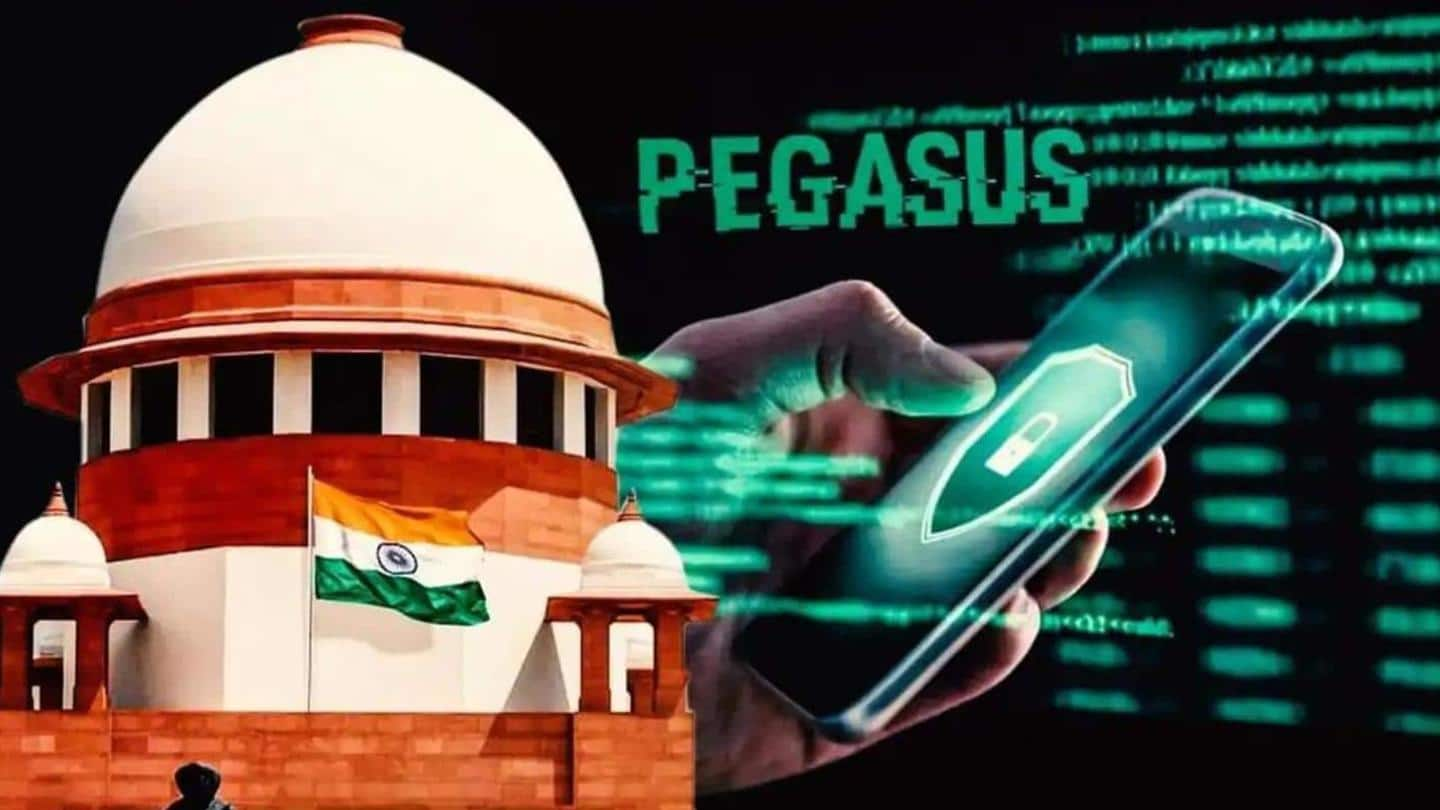
SC orders Pegasus probe; says Centre 'cannot get free pass'
What's the story
The Supreme Court on Wednesday ordered an independent probe into the Pegasus snooping scandal involving allegations of widespread surveillance of politicians, journalists, activists, etc.
The apex court ordered the formation of an independent three-member expert committee.
The court also berated the central government for citing the national security argument adding that its denial of allegations was "vague and omnibus."
Context
Why does it matter?
The Supreme Court's order comes as an upset for the central government that had opposed a judicial debate on the matter, citing national security.
The court has now said that the Centre cannot cite national security and "get a free pass every time."
The probe will look into whether the government used the Pegasus spyware to snoop on Opposition leaders, journalists, activists, among others.
Details
Multiple petitions had sought probe
A bench comprising Chief Justice of India NV Ramana and Justices Surya Kant and Hima Kohli heard pleas seeking a probe into the Pegasus case.
The petitioners included advocate ML Sharma, MP John Brittas, Hindu Group Director N Ram, Asianet founder Sashi Kumar, the Editors Guild of India, and journalists Rupesh Kumar Singh, Ipsa Shatakshi, Paranjoy Guha Thakurta, SNM Abidi, and Prem Shankar Jha.
Information
Who will be on the probe committee?
The court ordered the formation of an expert committee headed by former SC judge, Justice RV Raveendran. The expert committee will also comprise Alok Joshi (former IPS Officer) and Dr. Sundeep Oberoi, Chairman, Sub Committee in (International Organisation of Standardisation/International Electro-Technical Commission/Joint Technical Committee).
Court proceedings
SC clarifies stand on privacy
The bench observed that safeguarding privacy is important in the era of information technology.
Restrictions on right to privacy are bound by constitutional safeguards, it said.
Such restrictions may only be imposed to prevent terrorism in the interest of national security, it added.
Surveillance technology impacting the right and freedom of people may have a chilling effect on the press, it further said.
Court proceedings
No specific denial by Centre: SC
"State cannot get a free pass every time by raising national security concerns. No omnibus prohibition can be called against judicial review," the bench noted.
"Centre should have justified its stand here and not render the court a mute spectator," it said.
It said there has been no specific denial by the Centre about the use of Pegasus, thus it was ordering a probe.
Background
Centre's reluctance for transparency irked court
On August 17, the court had sought the Centre's response to pleas seeking a probe into the Pegasus case.
The Centre repeatedly cited national security concerns and had even refused to file an official affidavit, despite the court's communication that it only sought clarification regarding surveillance of civilians.
Eventually, the court said that it will pass orders without the Centre's affidavit.
Surveillance
What is the Pegasus controversy?
Pegasus is a military-level spyware—developed by the Israeli company NSO Group—which is only made available to vetted government clients.
It had made headlines in 2019 for its reported use by various governments to track individuals.
In July, a global consortium of media houses revealed the names of 50,000 potential surveillance targets, including 300 Indians citizens: journalists, opposition leaders, ministers, activists, among others.